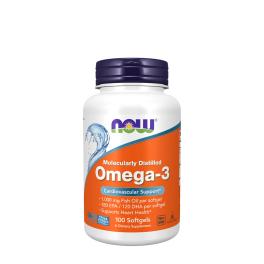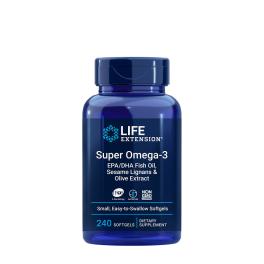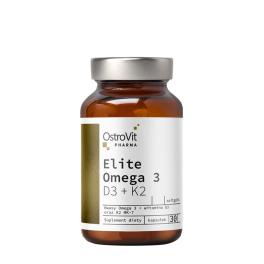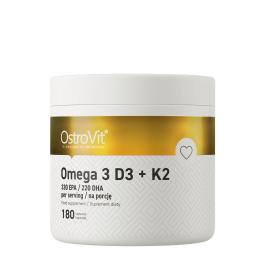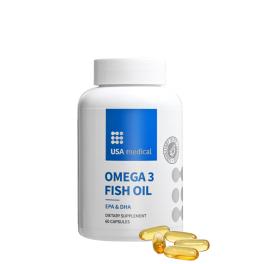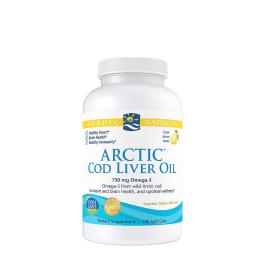The term omega-3 fatty acid is often encountered when reading about healthy diet. This is no accident: without it, certain functions in the body cannot function properly. The thing is a bit silly because even though we are talking about an essential fatty acid, our body cannot produce it - so we are forced to supplement it through nutrition. Among other things, polyunsaturated fatty acids also play a role in the prevention of several chronic diseases and have a beneficial effect on the functioning of the cardiovascular system. Its anti-inflammatory role is widely known. The Vitamin360 online store offers omega-3 tablets, liquid omega-3 oil, and soft capsules, so everyone can find something they like!
What exactly is omega-3?
Omega-3 is a polyunsaturated fatty acid. The key word is unsaturated: these fatty acids have double bonds, so their structure is looser. It is more difficult for them to stick to the vessel walls - this is why they have cholesterol-lowering and vessel wall-protecting effects. There are 3 fatty acids in our body that can take care of our health in the right proportion: ALA (alpha lipoic acid), EPA (eicosapentaenoic acid) and DHA (docosahexaenoic acid).
The two most important components of omega-3 are EPA and DHA. If we decide to supplement our body's omega-3 needs in the form of a food supplement, it is worthwhile to check the amount of these two ingredients between the values indicated on the box. Omega-3 can exert its positive effect thanks to EPA and DHA acids. Among its thousands of other positive properties, it reduces blood density, high blood pressure, and blood triglyceride levels.
How do Omega-3, -6 and -9 differ from each other?
The most important difference between the three omega fatty acids is that each of them is formed differently. Omega-3 and omega-6 cannot be produced by the body (essential fatty acids), while omega-9 can be produced (non-essential fatty acids). All of them are named after their chemical properties: their number indicates the position of the chain where the carbon double bond is located.
Their effects on the body are also different. Omega-3 fatty acids take care of the health of our brain, eyes, and cardiovascular system, while omega-6 fights obesity and diabetes. Omega-9 supports the functioning of our body by reducing harmful cholesterol levels and is also known for its anti-inflammatory effect.
What are the benefits of getting enough omega-3?
As we mentioned earlier, sufficient omega-3 fatty acids support circulation and also have a beneficial effect on the functioning of the immune system as a whole. It inhibits the aging process and helps our vision to be sharper. Eczema patients and other skin patients have also reported positive changes in the condition of their skin as a result of omega-3 supplementation. In addition to all this, this fatty acid is one of the most important cornerstones of infant development.
What are the symptoms of omega-3 deficiency?
One of the most obvious symptoms of omega-3 deficiency is irritated dry skin. Due to the lack of omega fatty acids, the skin loses moisture more easily and is less able to protect itself against external influences. A lack of Omega-3 can also cause acne. The same is the case with hair: if it becomes dry and lifeless, and we experience hair loss, the level of omega-3 in our body may have decreased.
Research has been done on the relationship between neurodegenerative diseases and omega-3. A link has been found between this fatty acid and Alzheimer's disease, depression, bipolar disorder and dementia. Having enough omega-3s in your body can help prevent the development of the severe bipolar disorder and depression, and support the treatment of dementia and Alzheimer's disease.
Priority supplementation of omega-3 is also recommended for those suffering from computer vision syndrome. The essential substance helps tear production, but at the same time, omega-3 fatty acids can also alleviate joint pain and stiffness.
How can we supplement omega-3?
Omega-3 can be supplemented with natural nutrients and food supplements. In the case of omega-3 tablets and liquid omega-3, we can easily determine the daily intake. With a little care, we can effectively incorporate polyunsaturated fatty acids into our diet through food. Eating the following foods can do a lot for our health:
- sea fish
- linseed, linseed oil, rapeseed oil
- chia seeds, pine nuts
- soy-bean
When and in what dosage should you take omega-3?
Although the need for minerals varies from individual to individual, an approximate value is worth considering. The recommended value for each nutrient is determined by the World Health Organization (WHO) based on research. According to the recommendations, a healthy adult should consume at least 250 mg of EPA+DHA per day to maintain the healthy functioning of the immune system. "Pure" omega-3 does not contain EPA and DHA, which means that not all valuable active ingredients can be utilized in the body.
The recommendation is different during pregnancy and breastfeeding. In the affected periods, for healthy fetal and infant development, it is recommended to increase the omega-3 dose to 1300-1400 mg per day.
Nowadays, it is a bit difficult to eat as much as we need of each food as precisely as possible. Nutritional supplements help in this: thanks to them, we can supply the nutrients that our body does not produce at the right time and in the right dosage. In the case of omega-3 capsules, use the values indicated on the packaging as a basis. Experts advise that our omega-3 dosage should be distributed in several parts throughout the day and consumed with plenty of liquid before meals.
Even those who don't like capsules can choose from products containing omega-3: they can consume this extremely important fatty acid not only in the form of tablets but also in the form of oil. Choose one that contains both EPA and DHA so that omega-3 can exert its beneficial effect. In the Vitamin360’s range, you can buy enough omega-3 for up to 180 days in a single box.


